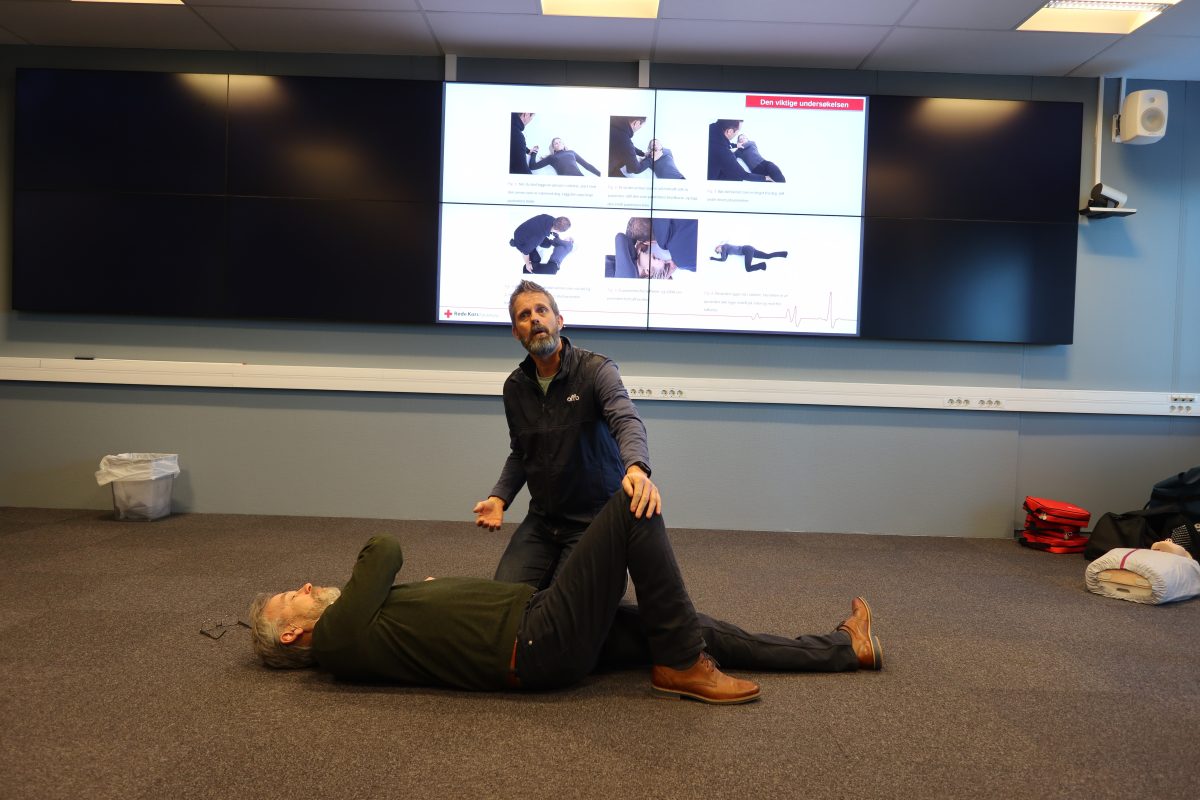“If you find yourself in a situation that requires cardiopulmonary resuscitation (CPR), the most crucial thing is to do something, as every second counts. However, you have a clear advantage if you have received some training in advance. Getting familiar with how a defibrillator works is also a definite advantage,” says Kim Åke Sviland.
In addition to being a chief of staff at OFFB, he has several years of experience as a nurse, as well as a long history with voluntary search and rescue services. Kim reminds us of the importance of those standing near to immediately initiate life-saving first aid. That way, we can together strengthen the chance of surviving acute illness and injury.
A significant investment
Precisely because emergency preparedness is our main focus at OFFB, we must practice what we preach. All full-time employees have now completed a three-hour course in cardiopulmonary resuscitation with the use of a defibrillator.

“It was important for us to prioritise this; both to be better prepared for incidents at the companies we are on duty to provide emergency services to, and to support the government's strategy of enabling the population to better help themselves and others in cases of acute illness and injury,” says Ole Jacob Haug, managing director of OFFB.
During the course, we practiced emergency call notification, examination of an ill or injured person, securing open airways and stable recovery position, CPR (cardiopulmonary resuscitation), the use of a defibrillator, what to do if a foreign object is lodged in a person’s airways, and how to detect signs of acute heart disease.
All course participants had to get on the floor and do practical exercises. And now we are all familiar with the defibrillator in our office building here at Koppholen.
It is recommended to refresh DHLR courses at least every two years. The course is offered by organisations such as the Red Cross.











